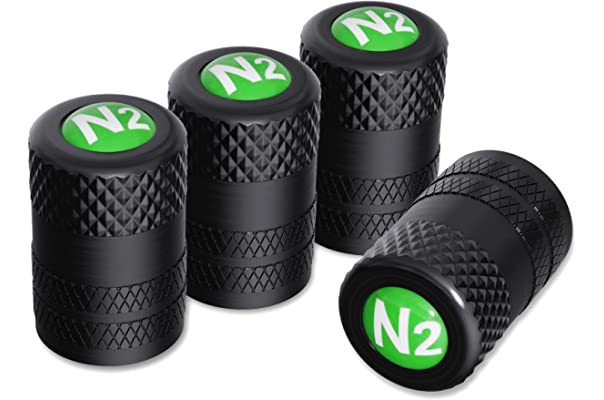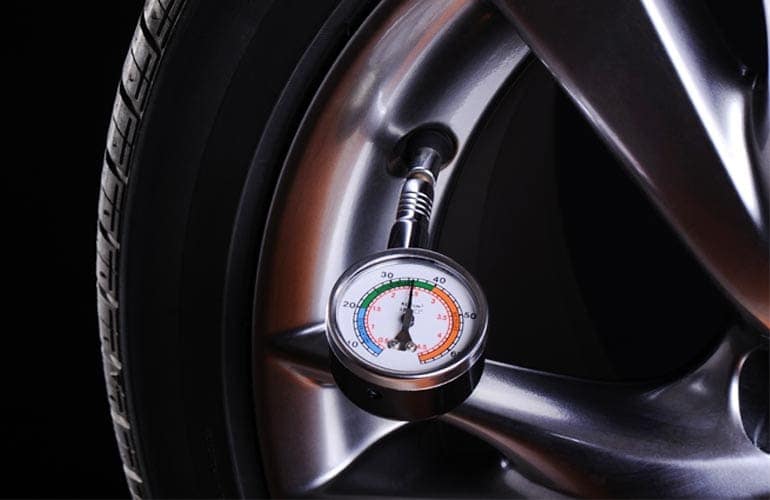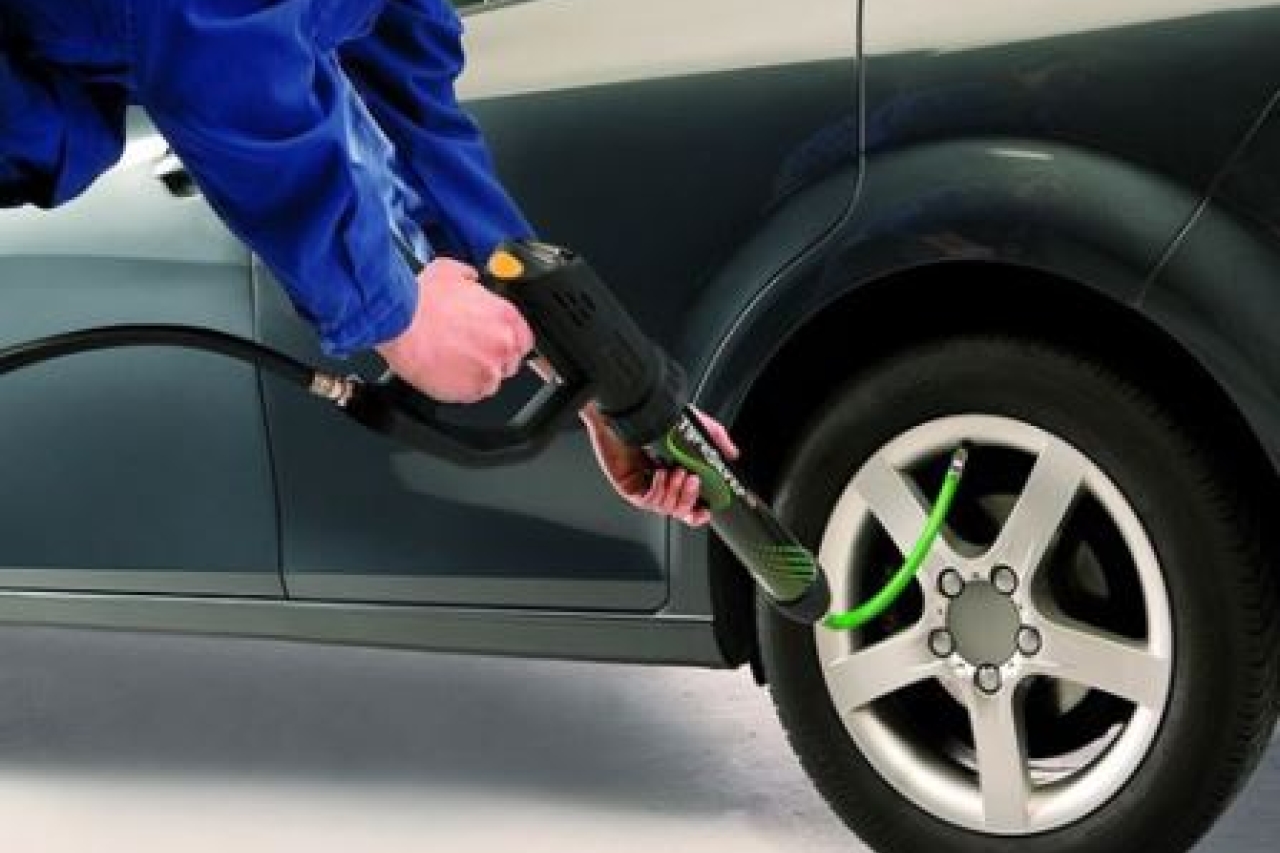TEMPERATURE CHANGES AFFECT TIRE PRESSURE:
The manufacturer of your car specifies the optimal tire inflation pressure; these details are either in the vehicle handbook or inside the door on the driver’s side. Continental recommends a check on inflation pressure at least once every two weeks (and especially before embarking on a long car journey).

So where does nitrogen figure in the conversation? Well, the behavior of any gas is such that it expands when heated and contracts when cooled, and nowhere is this more evident than with the gases inside a tire.
The inflation pressure rises and falls according to changes in temperature; every 6 degrees Celsius results in a shift of almost 1 PSI (pound per square inch). For this reason, it’s better to check tire pressure early in the morning before the heat of the sun (or heat generated by driving) causes the temperature to increase. Cold air pressure readings are going to be more accurate.
In this scenario, nitrogen-filled tires are advantageous because nitrogen gas doesn’t support moisture or combustion. Compared with ambient air – which contains roughly 78 percent nitrogen, 21 percent oxygen, plus miscellaneous gases – pure nitrogen is an inert, non-flammable gas. Essentially, it’s dry air with the oxygen wholly removed.
NITROGEN i IN HIGLY SPECIALIZED TIRE SERVICE APPLICATIONS:
Thanks to these inert properties, tires inflated with nitrogen are beneficial for highly specialized service applications in demanding environments, such as aviation, mining, or construction.
Dry nitrogen mitigates tire pressure variations, so nitrogen-filled tires are also used in professional race car driving, where even the smallest changes in pressure can impact ultra-high-performance vehicle handling at extreme speeds.
So, now we come to the big question: is nitrogen right for your tires? The fact of the matter is that inflating tires with nitrogen is not necessary for typical everyday use on a passenger car. It might even be considered a frivolous waste of money.

To be clear, inflating tires with nitrogen is not harmful. Moreover, the PSI stays steady in the long term. (Tires filled with regular air lose pressure through permeation a little more quickly.)
But for the most part, nitrogen makes absolutely no difference when it comes to a loss of pressure caused by tire punctures, tire bead leaks, valve leaks, or other mechanical leaks. There’s no discernible benefit over air-filled tires, and that includes performance factors such as rolling resistance, fuel economy, and tire aging.
THE IMPORTANCE OF CHECKING TIRE PRESSURE REGULARLY:
To emphasize the point once more, check your tire inflation pressure regularly. If the pressure is below the manufacturer recommendation, the tire must be inflated again – either with air or, if you so choose, with nitrogen – to the proper inflation pressure.
For your safety, you must not drive with tires that are either underinflated or overinflated. This could create excessive strain and heat build-up and lead to catastrophic tire failure, and the risk of serious injury or fatalities.


